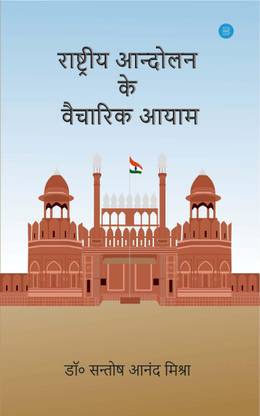Acharya Mahavir Prasad Dwivedi: Architect of Hindi Literature, Epoch-Maker, and Pioneer of Linguistic Awakening (15 May 1864 – 21 December 1938)
Introduction
If there is one individual who can be credited as the true architect of modern Hindi prose and literature, it is Acharya Mahavir Prasad Dwivedi. He not only elevated the Hindi language into a refined medium of literary expression but also connected literature with social reform, moral awakening, and national consciousness. His personality harmoniously embodied the vision of a critic, the foresight of a teacher, the alertness of an editor, and the creativity of a writer.
Early Life and Education
Mahavir Prasad Dwivedi was born on 15 May 1864 in Daulatpur village, Raebareli district, Uttar Pradesh. His father, Ramsahay Dwivedi, initially served in the British Indian Army but later adopted a saintly and spiritual life. This religious and scholarly atmosphere fostered in young Mahavir a deep inclination for study, self-learning, and contemplation.
In his childhood, he traditionally studied Sanskrit, Hindi, Urdu, and Persian. Though he also had an interest in English education, his mind was more drawn toward in-depth study of literature and philosophy. Although he briefly worked for the Indian Railways, his true passion always remained with writing and scholarship.
The 'Saraswati' Magazine and Editorial Contributions
In 1903, Dwivedi began editing the Saraswati magazine, published by the Nagari Pracharini Sabha in Allahabad. This event marked a turning point in the history of Hindi literature. Under his editorship, Saraswati became more than just a magazine — it emerged as the principal vehicle of the Hindi renaissance.
Key Contributions:
- Instilled a sense of social responsibility in writers
- Established Khari Boli (standard Hindi dialect) as a literary language
- Encouraged and mentored young writers like Maithili Sharan Gupt and Premchand
- Emphasized linguistic purity, coherence, and thematic depth
The 'Dwivedi Era': Definition and Features
The period between 1893 and 1918 in Hindi literary history is known as the Dwivedi Era. It is considered the foundational phase of modern Hindi literature.
Major Features:
- Morality-Centric Literature: Writing aimed at social reform rather than mere entertainment
- Nationalism and Public Consciousness: Introduction of nationalistic fervor in Hindi literature
- Language Refinement: Structured and expressive prose grounded in grammar and clarity
- Development of Essays and Criticism: Initiated serious criticism and philosophical writing in Hindi
Literary Contributions
Acharya Dwivedi was a remarkable essayist, critic, poet, and translator.
Poetic Works:
- Kavita Kaumudi, Kavita Kalap, Kavya Manjusha
- Themes included social reform, religious awakening, and moral values
Essay Collections:
- Sahitya Sandarbh, Vichar Vimarsh, Sahitya Charcha
- Played a crucial role in establishing the Hindi essay as a distinct genre
Translation Work:
- Translated numerous works from Sanskrit, English, and Marathi into Hindi
- Examples: Hitopadesh, Shivaji Charitra, verses from the Bhagavad Gita
Critical Writing:
- Offered insightful critiques on authors like Tulsidas, Kabir, and Bharatendu Harishchandra
Social and Linguistic Vision
Dwivedi envisioned society as a strong and conscious nation. His writings beautifully blended reformist zeal with idealism.
- Opposed social evils such as child marriage, casteism, and superstition
- Advocated women’s education and rights
- Championed Hindi as the national language and a tool for public expression
Significant Contributions to Hindi Literature
- Developed Hindi prose into a strong, refined, and thought-provoking medium
- Provided guidance and platforms for emerging writers
- Laid the foundation for modern Hindi journalism, editing, and criticism
- Elevated literature as a means for social service and nation-building
Death and Remembrance
Acharya Dwivedi passed away on 21 December 1938 in Raebareli. His death marked the loss of a guiding force in Hindi literature. However, his literary values, linguistic style, and critical standards continue to resonate even today.
Conclusion
Acharya Mahavir Prasad Dwivedi was not just a writer or editor — he was a movement, a vision, and an era unto himself. He gave Hindi its modern identity and laid the foundation of literary consciousness that still supports Hindi literature today. His name will always be remembered with reverence and respect in the annals of Indian literary history.













0 Comments
Thank you